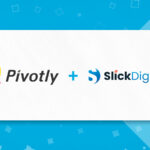> Articles > How to Choose the Right Blockchain Platform for Your Development Project?

How to Choose the Right Blockchain Platform for Your Development Project
For businesses in a variety of industries, blockchain has emerged as the key technology because transactions conducted through it are transparent, safe, and resistant to change. It streamlines the complex process of financial transactions and, in fact, ends up saving expenses on data and financial transfers.
With blockchain platforms becoming increasingly more popular, the market has seen a surge in availability. As a result, picking the right one for your project has become a daunting task.
What are Blockchain Platforms?
Blockchain platforms are tools used by developers to create applications on a blockchain, without the need to start from scratch. Think of it as a controlled environment where you can build, test, and manage blockchain apps.
Types of Blockchain
There are three primary types of blockchain networks: private, permissioned, and public.
Public
Public networks are decentralized, meaning they are open to the general public and no single entity controls the network. This makes them highly transparent and secure (because the network is open to all, it is more difficult to hack or manipulate). However, they tend to be impractical, slowing down, and becoming expensive at large scales, and they consume a lot of energy.
Private
These networks are controlled by a single entity and are only accessible to a select group of individuals. Organizations tend to use these for internal purposes as they have little to no latency and offer complete control.
Permissioned
Blockchains that are a combination of public and private are called permissioned blockchains. They are open to the public, in a general sense, but can restrict specific users. Participants must be granted permission to perform tasks such as validating transactions or accessing data. They tend to offer high storage capacities and much higher speeds compared to a public network.
Tips for Selecting a Blockchain Platform
Choosing the correct blockchain platform for your business development project is a crucial decision. The “best” platform would be determined based on your specific goals, technical requirements, and the type of application you’re building.
1. Understand Your Project’s Needs
To clearly define the purpose of your blockchain project, ask yourself the following questions:
- Would you need a public, private, or permissioned blockchain?
- What are your scalability and security requirements?
- Is the application for supply chain tracking, contracts, or financial transactions?
Knowing your goal will significantly narrow down the list of platforms to choose from.
2. Consensus Mechanism
The consensus mechanism is how a blockchain network agrees on which transactions are valid and adds them to the blockchain. The most common options include:
- Highly secure but energy-intense Proof of Work (PoW)
- Energy-efficient and suited for platforms like Ethereum, theProof of Stake (PoS)
- The fast and efficient Delegated Proof of Stake (DPoS) is used by platforms like EOS.
3. Your Scalability Requirements
A major setback that most blockchain development projects run into is scalability. Their inability to cope with the growing number of users and transactions creates a major hurdle. To avoid this common pitfall, determine the scope of your project and how user- and transaction-heavy it will be. This will allow you to select the blockchain that can best handle your project’s requirements.
4. Developer Support
It’s best to have a blockchain with an active community, with developers who are engaged and involved. This community becomes invaluable as it not only provides support and updates but also acts as a massive talent pool.
5. Security
Blockchains are often chosen for their security, but that doesn’t mean every platform is equally secure. Thoroughly analyze the security features a blockchain platform offers, including how they store and secure data. Common things to look for are:
- Availability of permissioned networks for privacy
- Cryptographic methods used
- Frequency of updates
- How users and records are verified
Conclusion
The decision of selecting a blockchain platform is extremely important, and is made even harder thanks to the sheer abundance of blockchain platform options available in the market. With that said, by clearly defining your requirements and needs, and evaluating factors like scalability, security, and developer support, you can reach the right conclusion and select the platform that works best for you.
Frequently Asked Questions
Q1 . What are the most popular blockchain platforms?
Some of the most popular blockchain platforms are Ethereum, Binance Smart Chain (BSC), Solana, Polkadot, and Cardano.
Q2. Can I integrate blockchain with existing systems?
Blockchain can be integrated into an existing system via APIs and middleware solutions that allow blockchain to connect to a legacy system.
Q3. Which is the best blockchain platform for my application?
The best blockchain platforms, generally speaking, are Ethereum, Hyperledger Fabric, and Corda. However, the “best” platform would depend entirely upon the requirements of the project. To determine which solution best meets the needs of your project, contact SlickDigital. Our team of experts can help you choose the right solution tailored to your business needs. Reach out to us today for personalized guidance!
Latest Posts
-
 10 Jun 2025 Company NewsPress Release: SlickDigital Joins Pivotly to Advance Custom App Development for AI-Driven Enterprises
10 Jun 2025 Company NewsPress Release: SlickDigital Joins Pivotly to Advance Custom App Development for AI-Driven Enterprises -
 21 Nov 2024 Data MigrationKey Data Migration Challenges and Effective Strategies to Overcome Them
21 Nov 2024 Data MigrationKey Data Migration Challenges and Effective Strategies to Overcome Them -
 21 Nov 2024 Blockchain DevelopmentHow to Choose the Right Blockchain Platform for Your Development Project?
21 Nov 2024 Blockchain DevelopmentHow to Choose the Right Blockchain Platform for Your Development Project? -
 21 Nov 2024 MVP DevelopmentHow to Validate Your Business Idea with MVP Development
21 Nov 2024 MVP DevelopmentHow to Validate Your Business Idea with MVP Development -
 19 Nov 2024 Staff AugmentationTop Benefits of IT Staff Augmentation for Growing Tech Teams
19 Nov 2024 Staff AugmentationTop Benefits of IT Staff Augmentation for Growing Tech Teams -
 19 Nov 2024 CloudHow Cloud Applications Affect the Future of Your Business
19 Nov 2024 CloudHow Cloud Applications Affect the Future of Your Business -
 18 Nov 2024 Application DevelopmentExplore the Best Tools for Effective Application Integration
18 Nov 2024 Application DevelopmentExplore the Best Tools for Effective Application Integration
